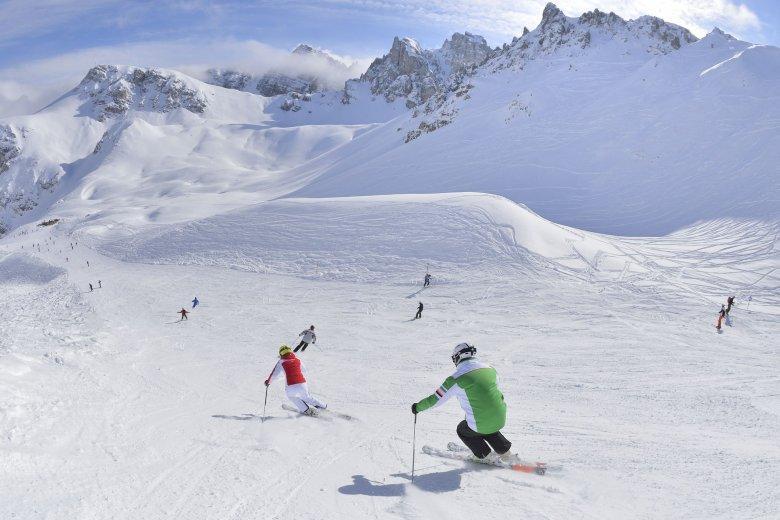Skiing is an exciting winter sport that appeals to adventurers of all skill levels. Whether you’re hitting the slopes for the first time, are an experienced skier, or want to improve your skiing skills, the key to success is ski smarter, not harder. You can accelerate your progress and improve your overall skiing experience with snowmass ski lessons and insider techniques.
Table of Contents
Master the Basics with Precision:
Make sure you have a solid foundation before diving into advanced techniques. Perfect your posture, balance, and basic turns on gentle slopes. The focus is on efficiently distributing weight between the skis and maintaining a central position. With a strong foundation, you can easily tackle more difficult terrain as you progress.
Invest in Quality Equipment:
Skiing with properly maintained and properly sized equipment greatly impacts performance. Invest in quality skis, boots, and poles that suit your skill level and body type. Check and optimize your equipment regularly to ensure optimal functionality. Properly fitted equipment not only increases comfort but also improves control on the slopes.
Utilize Video Analysis:
Record your ski sessions and take advantage of the latest technology. By analyzing your footage, you can identify areas for improvement, such as B. Posture, corner initiation, and overall technique. Compare your videos to those of professional skiers and get feedback from ski instructors to further develop your skills.
Condition Your Body:
Skiing requires strength, agility, and endurance. Incorporate targeted exercises into your fitness program to improve strength and flexibility. Focus on building core strength, leg muscles, and cardiovascular endurance to ski longer and more effectively.
Develop Mental Toughness:
Skiing is both a mental and physical challenge. Cultivate a positive attitude and overcome fear by setting achievable goals. Visualization techniques can help you rehearse your successful run in your head, increasing your confidence and focus on the slopes.
Embrace Professional Instruction:
Whether you consider yourself an intermediate or advanced skier, enrolling in a ski class can provide valuable insight. The professional instructors provide personalized instruction and highlight specific areas for improvement. By introducing advanced techniques and correcting bad habits, you can ski more efficiently and safely.
Choose the Right Terrain:
Choose terrain that suits your skill level and progress at your own pace. Gradually increase the difficulty as you become more proficient. Pushing yourself too hard on difficult slopes can lead to frustration and hinder your overall progress.
Learn the Art of Edge Control:
Mastering edge control is critical to accurately navigating slopes. Practice carving and edging techniques to improve control of your turns. Experiment with different edge angles to understand how they affect speed and direction.
Stay Consistent:
Consistency is the key to rapid progress. Regular training, even just a few hours a week, builds muscle memory and sharpens your technique. A combination of consistency and targeted effort will accelerate your progress and help you ski with more confidence.
Celebrate Small Wins:
Recognize and celebrate your successes, no matter how small. Setting and achieving realistic goals will boost your morale and keep you motivated. Being aware of your progress promotes a positive attitude and makes your ski trip fun and rewarding.
Best Time to Learn Ski
Early Winter:
Early winter, usually November to December, is the best time to start skiing. While taking ski lessons, you can also opt for snowboard lessons as they both are winter sports and have similar qualities. The main difference between these sports is that you use two skis in skiing and in snowboarding you use a single ski board.
Weekdays:
If your schedule allows, consider taking classes on weekdays. Ski resorts tend to be the busiest on weekends and holidays, which can make it more difficult for beginners to have a relaxing learning experience.
Off-season:
Plan to take ski lessons during the off-season. This usually happens at the beginning or end of the ski season, and ski resorts offer discounted prices on lessons and lift tickets. Enjoy quiet ski slopes and great offers.
Night Lessons:
Many ski resorts offer night skiing, and some even offer lessons at night. Evening classes are a great option, especially if you have a busy schedule during the day. The atmosphere under the stars is magical and you will have a unique experience learning how to ski and snowboard.
Plan ahead:
If you plan on taking lessons during peak season, it’s important to plan. Please be sure to reserve your class in advance to ensure a day and time that is convenient for you. Instructor schedules fill up quickly, so waiting until the last minute can leave you disappointed.
Snow Conditions:
Snow conditions change throughout the winter, so you can learn to ski or snowboard anytime. The snow seen early in the season is usually light and loose, making it suitable for beginners. Later in the season, the snow can become even denser, making learning more difficult.
Also Read: 9 Things To Do In Jeju Island In Winter
Summary
Skipping smarter requires improving your fundamental skills, leveraging technology, staying fit, and maintaining a positive attitude. Incorporate these insider techniques into your daily ski routine and you’ll quickly improve and be able to master new challenges on the slopes. Please remember. The important thing is to enjoy the journey and celebrate every step of your skiing improvement.
